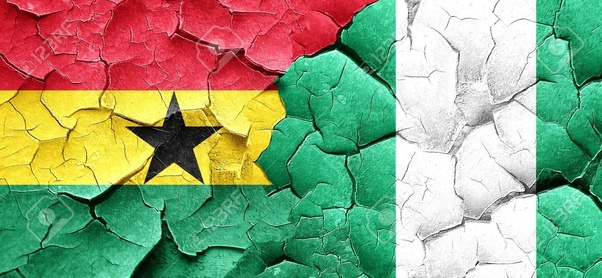Nigeria’s latest socio-political crisis has been followed closely by Ghanaians, indeed superseding most local news items and discussions among the urban populace. This is for very good reason; indeed it should be the most important issue facing government itself, save of course the effort to get itself re-elected in December.
It is interesting however that most of the calls on President Nana Akufo-Addo to play a more active role in resolving Nigeria’s latest crisis have been premised on his current role as Chairman of the Economic Community of West African States, ECOWAS.
While this role is indeed important, President Akufo-Addo has a bigger stake in Nigeria’s problems as the leader of Ghana itself; and that role goes beyond his diplomatic responsibilities to border on the wellbeing of Ghanaians themselves.
The ongoing retail trade dispute between Ghana and Nigeria explains why.
It is instructive that the Nigerian retail traders who do their business in Ghana are not here because they lack space in the retail trade sector in Nigeria; they are here because Ghana offers a more conducive operating environment for their business – and their social lives – and because they are generally more price and customer service competitive against their Ghanaian counterparts than they are against their compatriots back in their home country.
None of this is lost on the millions of Nigerians engaged in various types of business back at home and who do not need peculiar government or host community patronage to stay profitable.
Which means if life becomes unbearable in Nigeria because of the current crisis – or any future one – Ghana would be a leading option for relocation; and because of ECOWAS protocols, Ghana would have great difficulty in turning them back if they abide by this country’s own investment laws.
This creates the potential for the economic dislocation of Ghanaian business people across several types of business activity, retail trading being just one of them.
Even if one percent of Nigeria’s population – nearly two million people – chose to relocate to Ghana with the wherewithal to meet whatever financial conditions are imposed on them by local investment laws, it would create the potential for as many as one million or more Ghanaian business people to lose their market share.
Any administrative effort to stop this from happening would be seen as a major infraction against existing sub regional integration protocols – and correctly so too.
But the potential problems do not end there. Another is the possibility that Ghanaian s living in Nigeria would need emergency evacuation in the face of severe civil strife in Nigeria, and there are hundreds of thousands of this country’s citizens resident there currently.
Even under normal circumstances such an evacuation exercise would be a prohibitively expensive logistical nightmare; distinguishing true Ghanaians – many of whom have no proper identification documents – from Nigerians pretending to be Ghanaians would be a formidable task.
Add to this the health risks of mass entry into Ghana in this era of a highly infectious, potentially fatal, pandemic.
Then there would be the potential problems facing the Ghanaian subsidiaries of Nigerian corporations caught up in the crisis. Even though they supposedly operate here as entirely separate corporate entities from their Nigerian parents all kinds of potential problems could arise, including inordinate transfers of money between the two countries as well as boardroom level corporate governance issues.
All of this means it is absolutely crucial for Ghana that any crisis in Nigeria does not descend into civil strife deep enough to generate a mass outward migration.
Here – and at the risk of being labeled amoral – this newspaper would advise that a Ghanaian president’s main concern should be the retention of socio-political stability in Nigeria rather than an effort to correct even clearly identified wrong doings.
This might mean helping to paper over cracks rather than aiming for the moral high ground with regards to any interventions from Ghana – even if that requires getting into bed with unethical Nigerian leaders over certain issues.
Ultimately, Ghanaian leaders first responsibility is to the Ghanaian citizenry not their Nigerian counterparts, no matter the circumstances the latter are placed in. Such are the realities of state leadership.








